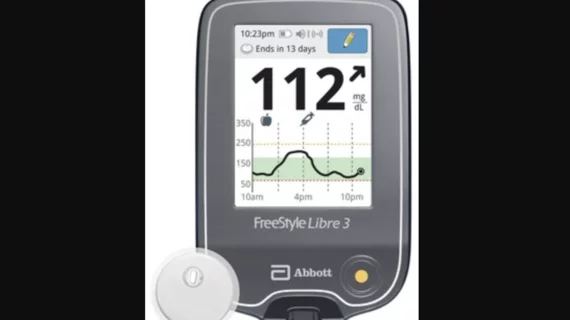Abbott says some FreeStyle Libre 3 sensors need replacement—patients should discontinue use
Abbott is issuing a medical device correction for certain lots of its FreeStyle Libre 3 sensors due to a heightened risk of inaccurate readings. The issue is that the sensors associated with the FreeStyle Libre 3 continuous glucose monitoring (CGM) system, which does not impact the reader or app associated with the system.
“Internal testing determined that some of the sensors from among three lots may provide incorrect high glucose readings, which if undetected may pose a potential health risk for people living with diabetes and can lead to incorrect treatment decisions, such as taking insulin when not required,” Abbott said in a statement shared by the U.S. Food and Drug Administration (FDA).
The correction impacts three specific lots of the FreeStyle Libre 3 sensors—T60001948, T60001966 and T60001969. If you have a device included in this medical device correction, you can contact Abbott for a replacement. A website, www.FreeStyleConfirm.com, has been created to help healthcare providers determine if any devices in their possession came from one of the impacted lots.
“If consumers have FreeStyle Libre 3 sensors from other lots, there is no need to take action and they can continue to use their sensors,” Abbott added. “There is no impact for users who live outside of the U.S. or use other FreeStyle Libre products (FreeStyle Libre 14 day, FreeStyle Libre 2, or FreeStyle Libre 2 Plus).”
The message for patients is simple: If you are wearing an affected sensor, discontinue use and get rid of any other affected sensors you may have. Abbot will send a replacement at no charge.
“We sincerely regret the disruption this may have on our customers,” said Jared Watkin, executive vice president of Abbott’s diabetes care business. “We’re actively working with the FDA and distributors, as well as providing information to affected customers, who will receive replacements at no charge as quickly as possible.”

